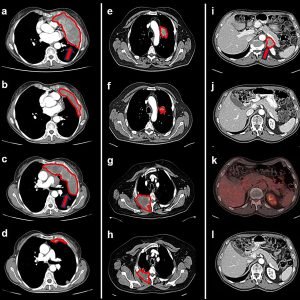
Heuron expands medical AI to Thailand
Heuron from South Korea has recently signed a distribution agreement to deliver its medical AI solutions to Thailand.
According to a press release, it partnered with AI software distributor Medhealth Informatics to sell Heuron’s products, including its stroke triage AI solution Heuron StroCare Suite; Heuron AD, which provides quantitative analysis of brain atrophy; and PET tracer quantification software Heuron Brain PET.
Additionally, they will collaborate to secure Thailand FDA approvals for the Heuron AI software.
MediBuddy develops fraud detection AI
Indian digital health company MediBuddy has introduced an AI-powered system to detect fraudulent claims in real time.
The FWA (fraud, waste, and abuse) solution called Sherlock leverages AI and data analytics to spot potential errors in medical claims before they occur. These include claim duplication, document tampering, pricing discrepancies, and compliance lapses. It also provides automated alerts for suspicious activities.
Integrated into MediBuddy’s cashless network, the AI can potentially help providers save up to 20% of costs related to reimbursements.
“Our strategic integration of an extensive cashless network with [this] advanced AI technology has yielded substantial results: a remarkable ₹6.3 crore ($750,000) cost reduction for our partners within a single policy year,” shared MediBuddy co-founder and CEO Satish Kannan.
Korea clears Vuno’s heart failure screening AI
Korean medical AI company Vuno has received another approval from the Ministry of Food and Drug Safety for its AI software.
The MFDS-approved Vuno Med DeepECG LVSD analyses ECG data using AI to spot left ventricular systolic dysfunction, which is a condition that can result in heart failure. The AI has achieved over 90% accuracy using three ECG types in clinical trials.
This is Vuno’s second regulatory clearance for DeepECG in South Korea. In May, it received approval for DeepECG AMI, which uses AI to identify acute myocardial infarction.
Based on a media statement, Vuno plans to integrate DeepECG LVSD into its at-home ECG device, Hativ P30.
AsiaMedic adopts AI chatbot for diagnostics appointment
SGX Catalist-listed diagnostics provider AsiaMedic has introduced an AI chatbot on WhatsApp to automate appointment-making.
“It was labour-intensive for the team to call clients, make, change, and confirm appointments. Reaching clients through email had poor response rates. Often, clients rush to make appointments only at the end of the year, causing a strain on operations during peak months,” shared AsiaMedic general manager Derrick Ong.
To resolve this challenge, it chose the AI virtual assistant solution of Singaporean startup MIEA Health to help communicate with clients via WhatsApp. It can suggest an appointment date and time and allow clients to confirm and make changes to them.







